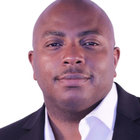Should GOPPAR be the New REVPAR?
10 experts shared their view
It seems our industry is or at least it was prior to Covid addicted to REVPAR. But we all know that measuring REVPAR is only an indication of room revenue performance and has absolutely nothing to do with profit. With ever increasing reporting tools we now have the ability to measure and even index GOP within a comp set just like REVPAR. The question is, who if anyone in our industry will take this giant step? Who will lead the charge to get comparable profit per available room as a key measurement to accompany REVPAR? With different stakeholders there are varying degrees of what's in our best interest to reveal and compare. Is it time for a new measurement? What are the issues?
Having spend the last few years making exactly this point, and previously in hotel operational finance, I am very pleased to see the industry moving in this direction. Many operators have already moved to include a profit index in their reporting and some owners have even been successful in including in the management agreement as a performance measure. Clearly the pandemic has driven operators and owners alike to consider the full picture.
Traditional revenue streams are being replaced (co-working vs meeting rooms, hybrid vs conferencing and others) and hoteliers are having to reconsider their model. Hotels are certainly a lot more complex than just selling beds these days.
Our view of what is a fixed cost has also changed as the pandemic crisis meant we were forced into a real zero-based budget scenario. This has resulted in a real shake up of the operating model and a reconsideration of guest needs to keep costs under control.
All of the above has been compounded by the cost of inflation, energy prices, labour shortage and many other factors, making budgeting / forecasting a challenge, without keeping on top of what is happening in the market.
In summary, yes this is definately the way forward and a great way to get all stakeholders around a metric that really matters - profit.
Owners have historically used avaialble financial benchmarking reports becuase their ability to pay debt and earn a return on their investment is dependent on the bottom-line, not the top-line. It takes more of an effort to convince operators that they can benefit by comparing the operating performance of their hotels to comparable properties.
As for challanges, there is less consistency of how the multitude of revenues and expenses found on an operating statement are calculated and reported, versus the relative consistency of calculating rooms available and rooms revenue. This makes it difficult to achieve "apples-to-apples" comparisons.
Owners and operators should also understand that a comparable set of properties used for financial benchmarking may, or may not, be the same as the competitive set used to benchmark market position.
I'm a firm believer that the best hoteliers and GM's are those that are financially literate. Obviously, there is more to leading a hotel than just financial literacy, but it is a huge component. I also believe that as hotel leaders we should constantly be growing our Lid's to steal a concept from John Maxwell. We should be improving our overall knowledge and learning new things so we remain challenged and sharp.
I believe GOPPAR is absolutely a critical indicator of your hotels success and if correctly understood will help you make better decisions for your owners ROI. If COVID and the 'Great Resignation' taught us one thing, it was we must learn to find ways to maximize our efficiency and profitability and adapt to the markets environment quickly. GOPPAR helps leaders understand what business is right for their hotel at that time and what business is less profitable. For our company at Timberline, we use GOPPAR and Flow/Flex religiously to help us determine the best revenue managment decisions for our owners. For example, we've learned by not cleaning stayovers due to COVID and having extended stay guests can be more advantagous at times to a short term stay at a higher rate due to GOPPAR. GOPPAR helped us identify that decision where REVPAR is limited in it's measurement. Especially in the current economy where inflation is high, costs are increasing and labor is difficult, GOPPAR helps you see clearly the best business for your operation. GOPPAR has also taught us that some guests or companies are not as profitable as others. REVPAR cannot measure that. We've learned to do theoreticals on specific pieces of business and how it could impact our service, quality, staffing levels and most importantly our bottom-line. GOPPAR does this and REVPAR does not.
When you are managing multiple hotels, GOPPAR can also help you see which hotels in your portfolio give you the most bang for your buck. This allows sales teams and revenue managers to focus on the most profitable assets.
There use to be a time as a hotelier that I was more concerned about where we ranked on a STR comp set and whether we were #1 in REVPAR and #1 in ADR. Now, I'm more concerned with our overall profitability and how decisions directly impact that. GOPPAR helps us measure that success. At the end of the day, STR comp set ranking cannot be deposited into the bank. Only profit.
This is an interesting measurement filled with detail and nuance that is impossible to convey if looking at a GOP Index report. Any number of factors can go into helping or hurting a hotels' GOP in the short or long term, and without that context, you have no idea what you're looking at, and can't possibly answer all of the questions that might arrise when comparing results against your comp set.
It's important to caveat this by saying that I know these would be confidential numbers but these reports and figures have a way of getting out there so we shouldn't delude ourseleves in to thinking that there wouldn't also be a list of unintended consequenses.
The first I see is from a staffing and wages perspective. Higher profit within a comp set could be misconstrued by employees (or unions) that staffing is too light, therefore they are overworked, or they are underpaid, or both.
The second could be from a staff engagement perspective. If new tools, uniforms or anything else needed to run the hotel day to day is needed but denied, higher profit performance against your comp set could bring difficult questions and lower morale from staff.
The third could be from a consumer persepctive. As concerns aboutcorporate profits outpacing inflation, it's not hard to imagine a scenario where customers feel like they get less value for dollar spent if they see hotel profits increasing.
There is no doubt that new measurements are needed (or old ones abandoned) as we navigate this new world we find ourselves, but they should focus on KPIs that have a more tangible quality. Perhaps an Employee Turnover Index, Training Hours per Hours Worked Index or even a COGS Index may be another place to look.
When demand plummeted in Q2 2020, hotel operators quickly realized the limitations of RevPAR as the #1 KPI utilized for decades. Companies scrambled to put underutilized but suddenly highly relevant KPIs front and center. Another realization set in quickly - they can't just be one KPI anymore but rather a set of them, tailored to the individual objectives of each hotel. When we started discussing the evolution of KPIs during our HSMAI Revenue Optimization Advisory Board KPI workgroup in 2021, we identified more than 70 KPIs holding value for a hotel's performance evaluation.
At the time we determined that measuring profit either as GOP and/or GOPPAR should be a minimum required KPI for all hotel operators. And since GOP is impacted by multiple factors across various hotel departments, we felt that it was only just that those departments would maintain joint ownership of the efforts behind optimizing profit. At Oxford, we started around halfway through 2021 to put a much higher emphasis on measuring GOP. Using the company's accounting software, the Finance department created new dashboards and reports to allow key stakeholders to monitor profitability in real-time.
At the same time, we streamlined incentive plans to ensure our teams weren't just looking at new business and top-line revenue one-dimensional but rather took a more educated, profit-minded approach. For a private hospitality company operating independent hotels, this re-calibration exercise is easier to accomplish than for public companies still very much addicted to RevPAR and RevPAR index as the single, most important KPI. Only when banks, asset managers, and hotel operators work together to change the paradigm will we see a change in the way we report and benchmark financial performance but also how we measure success.
RevPAR is a popular metric because it's simple to calculate, easy to manage, and benchmarkable against competitors thanks to pooled data via aggregators like STR. GOPPAR is none of those things. GOPPAR is more complex and imprecise, and hoteliers like order and exactitude. However, there's no question it's a superior metric for evaluating performance, and soon hoteliers may have no choice but to embrace it.
We now have the technology and data to make GOPPAR easier to calculate and manage. How benchmarkable it will become depends on the willingness of hotel owners and operators to share profitability data with competitors. If we can overcome that hurdle, then GOPPAR should become a standard unit of performance measurement. But even if that happens, I wouldn't expect RevPAR to disappear anytime soon.
The question is, who if anyone in our industry will take this giant step? I'm convinced that with the major switch of thinking and reset we are all facing post-Pandemic, large hospitality companies will go forward to measure their financial performance and business by using the GOPPar as the unit for performance. Compare to the competitor in the same market or even different markets. And over time that will become the main element of comparison with even small independent operators, the same as RevPar has been.
Who will lead the charge to get comparable profit per available room as a key measurement to accompany REVPAR? Again, I think a large company will go first, followed by others and then the independent operators.
With different stakeholders, there are varying degrees of what's in our best interest to reveal and compare.
Yes, correct contrary to RevPar which also have different factor impacting the value and share when comparing with others, such as type of Business (mid-scale, luxury, market etc..) GOPPar will have significant impact by other multiple factors such as (Collective agreement, cost of living, auxiliary operations, parking, spa etc). So all those factors as to be taken into account when comparing GOPPar to the competition same as what we currently do with RevPar.
Is it time for a new measurement? Yes totally, I will even not be surprised that within the next 2-3 years the GOPPar will become the financial elements on the KPI's and Incentive plan for the large company,
What are the issues?
Getting used to it but embracing it, like we did several years ago with RevPar
As the saying goes in motor racing "in order to finish first you must first finish" This literally means the car with the overall best package for the entire race will win - not the fastest car. In the hotel world having a great REVPAR is akin to the car sitting on pole, it might be the fastest in qualifying but how does it behave on a crowded track for 500 miles?
Owners want a winning bottom line. More and more I believe they are becoming aware that the profit can and should be measured against a comp set. Why stop at revenue when you're looking for ways to increase profit. With a GOPPAR index broken into its 6 quadrants, you can literally pinpoint the area where profit is being chewed up. With this newfound information, an owner can push hard in that part of the business. If payroll is high - then why and what can be done about it. With relative proof that this asset is performing above its index on a cost, it's one more powerful tool the owner can use to get local management focus.
Before GOPPAR and the ability to index its components, there was no way other than to conject what must be going on at other similar properties.
The next moves by ownership groups as well as management companies will be interesting.
Ouch! You mean actually tell people if the business is profitable or not? Hospitality has spent so long shying away from such measures (even the innkeeper only referred to his rooms being full) that it would certainly cause a few ripples.
In the hotel world where the brunt of risk is borne by owners and franchisees, this could spell disaster for the groups. When their footprints are made up with a mix of 'successful' and 'not-so successful' properties, reporting GOPPAR could really put a dent in their future plans. The ability to attract owners to their network in less profitable locations may well be decimated. I would expect that it would drive a return to owner operated hotels where the focus on the protection of profit is higher.
If GOPPAR is the new REVPAR then we are going to see a lot of negative numbers on some of these reports. Right now, even though things are looking up for some hotels, other hotels are still trying to get back on the beaten track. Don't forget about seasonal hotels as well that makes most of their revenue during the summer months. If GOPPAR becomes the new REVPAR, we're going to see more reports containing negative numbers during the off season.
The other side of the coin is producing an accurate report on a regular basis. I can produce accurate RevPAR numbers at the push of a button from just about any hotels PMS system. But compiling accurate expenses at the push of a button is another story. Unlike REVPAR with GOPPAR you have payroll, accruals, inventory adjustments, and more. Most of these numbers won't be accurate until after month end. Having your accounting department calculate GOPPAR without having to increase labor hour or neglect another task will be a formidable objective.
All in all GOPPAR would be ideal statistically since it would tell most operators when, where, and why they need to pivot from their current financial position.










